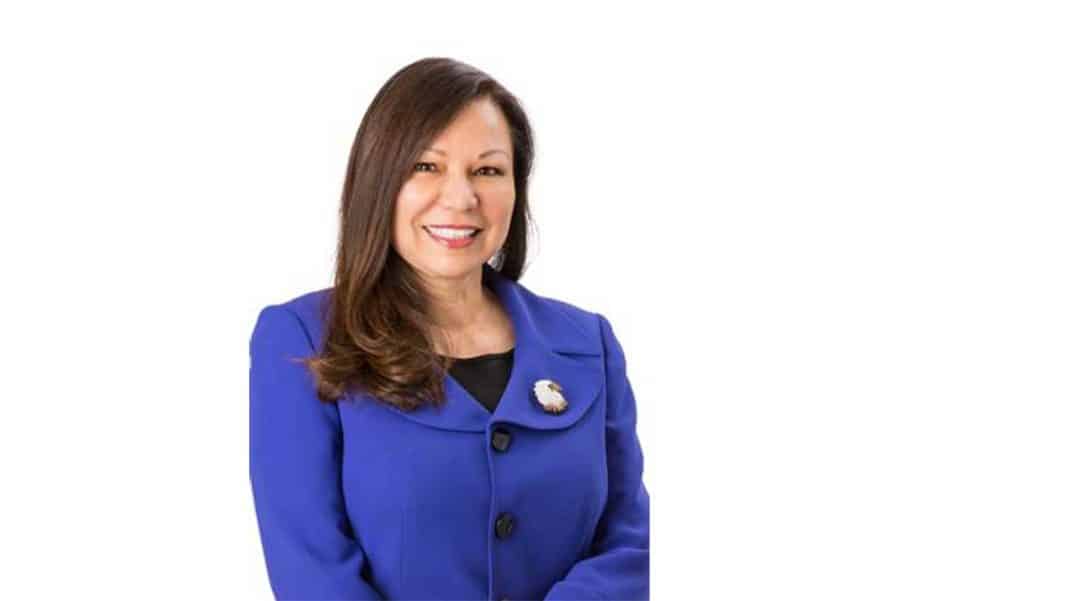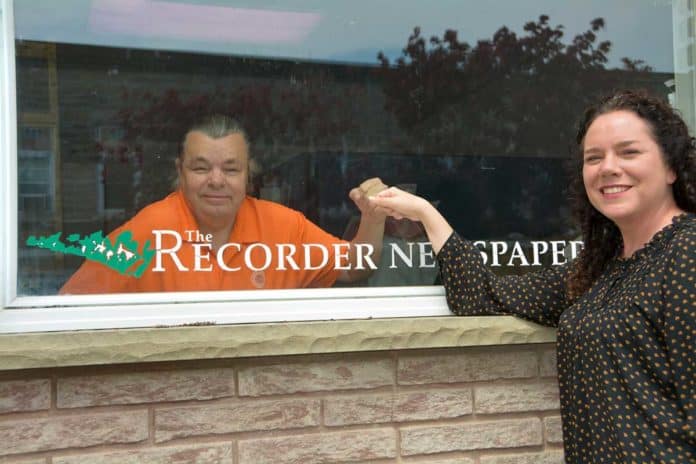OTTAWA- If there is a name that intuitively pops up in the minds of Islanders when one says “Indigenous business” that name will be Dawn Madahbee Leach, manager of Waubetek Business Development Corporation for 33 years. The Expositor recently discovered that Ms. Madahbee Leach has been appointed chair of the nation’s key Indigenous economic development board.
“I am happy to announce the appointment of Ms. Dawn Madahbee Leach as chair of the National Indigenous Economic Development Board (NIEDB),” said the Honourable Marc Miller,
minister of Indigenous services with the federal government. “Ms. Madahbee Leach is a highly qualified leader, and her extensive experience in giving voice to Indigenous economic needs nationally will serve the NIEDB and Canada well in the future. I also wish to offer my sincere thanks to Chief Clarence Louie, who has led the NIEDB as chair for the last 14 years, for his time and dedication in providing advice and guidance to the federal government on issues of Indigenous economic development.”
Ms. Madahbee Leach is the first Indigenous woman to lead the NIEDB, but that role is hardly the first for an Anishinaabe-kwe who has served as an Indigenous leader in the field of business and economic development providing “strong expertise developed at the regional, national and international levels.”
The NIEDB is the only national, non-political organization of its kind in Canada. It is mandated to provide strategic policy advice and guidance to the federal government on issues of Indigenous economic development. The board is composed of First Nations, Inuit and Métis business and community leaders from across Canada, and as such, the board helps governments respond to the unique needs and circumstances of Indigenous Peoples in Canada. The principal role of all NIEDB members is to provide strategic policy and program advice to the federal government on all matters pertaining to Indigenous economic development.
Ms. Madahbee Leach is no stranger to the NIEDB, having already served as vice-chair for several years—still, the appointment was not a slam dunk.
“There was a very thorough review,” said Ms. Madahbee Leach. “I was pleased and honoured to get the appointment.”
Ms. Madahbee Leach had high praise for her predecessor, Chief Louie of British Columbia’s Osoyoos Indian Band. “I have worked for so long with Chief Louie that he seems like part of the family,” she laughed. “I am pretty sure we will be seeing plenty of him going forward.”
Ms. Madahbee Leach said she is looking forward to continuing the work of the NIEDB as chair. “We will be assisting the government in meeting its target of five percent of government program purchasing being set aside for Indigenous business,” she said. One of the first and key items on her agenda is defining what is an Indigenous business. Like any new government policy aim or public focus, non-Indigenous businesses seek to fit their brand within those parametres (think greenwashing and corporate efforts to fit into the environmental movement, or the conceptual backflips being engaged in by film companies to meet Canadian content regulations).
Other goals are developing new institutions, those focused on issues such as building Indigenous infrastructure and business capacity.
The central element that will assist in that goal is that the NIEDB is entirely made up of Indigenous board members. “The voices leading this work are all Indigenous,” said Ms. Madahbee Leach. That is a major departure from the non-Indigenous-led efforts that have performed so poorly in the past.
Another important building block for success is data. “We don’t really have great data,” she said. Bringing together the many national Indigenous organizations, who have traditionally worked largely within their own silos, will help lay the groundwork for the collection of that key data.
“My efforts have always been in collaboration,” said Ms. Madahbee Leach. “That will be part of my role.”
Ms. Madahbee Leach said her experience with NIEDB has already put her in a good position through the establishment of an international network of contacts.
It is often forgotten that Europe has its own Indigenous populations who often face the same marginalization of Indigenous groups in the Americas. “They are often left on the outside when it comes to making economic policy,” she said. To that end, Ms. Madahbee Leach said she would like to see a greater presence of Indigenous PhDs. “We have over 400 Indigenous PhDs working in the field of economic development in this country,” she said. More of that collective brain trust should be engaged at the crucial levels where government policies are being formulated.
In addition to her work with Waubetek, Ms. Madahbee Leach is also a director with Peace Hills Trust and Niobay Metals Inc. Ms. Madahbee Leach is the first Indigenous woman in Canada to lead a regional financial lending institution, serving as the general manager of the Waubetek Business Development Corporation since 1988.
Ms. Madahbee Leach may be looking forward to her new role, but she said that her first love and focus will always remain her work with Waubetek Business Development Corporation. “My true joy is in working with Indigenous business people and our team here at Waubetek who try their best to assist Indigenous businesses to succeed,” she said. “We have an amazing team, fantastic people on staff and on our board. They are a delight to work with.”





